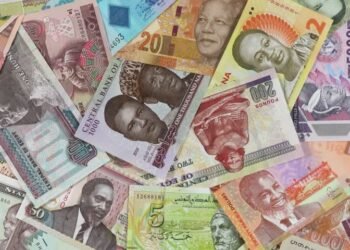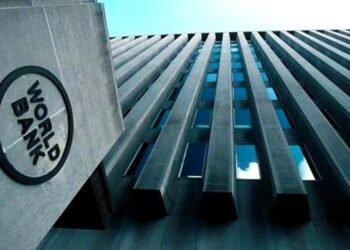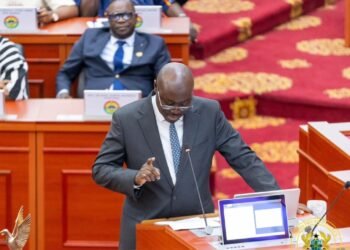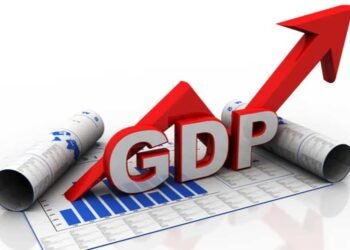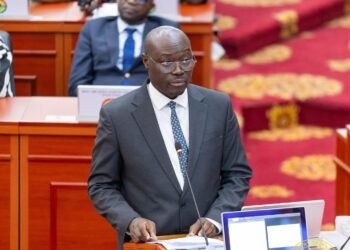Africa’s debt crisis has once again captured headlines as a new report by Bridgewater Advisors reveals a sharp and troubling trajectory in public debt across the continent.
According to its latest Africa Economic Outlook, Africa’s public debt skyrocketed by an alarming 170% between 2010 and 2024, a rate over three times higher than the global average of 54% for the same period.
Within this worrying trend, Ghana stands out for all the wrong reasons — recording a staggering $6 billion increase in its debt stock in 2024 alone.
Despite efforts to stabilize its economy following years of fiscal strain, Ghana’s public debt continues to rise. The $6 billion increase in 2024 has reignited concerns over the country’s debt sustainability. Ghana’s debt burden has been driven by a combination of factors including exchange rate depreciation, increased reliance on external borrowing, and lingering effects of the COVID-19 pandemic.
Bridgewater Advisors highlights that although West Africa has maintained a relatively stable external debt-to-GDP ratio of 31%, Ghana and Nigeria recorded the highest nominal debt increases in the region. Nigeria added $2.5 billion to its debt, but Ghana’s jump was more than double that figure — raising red flags about the country’s fiscal trajectory.
Exchange Rates and External Pressures
A major contributor to the debt spike is the depreciation of local currencies against major global currencies, which significantly increases the cost of servicing external debt. For Ghana, the weakened cedi has inflated repayment obligations, putting pressure on already strained government finances.
Bridgewater’s report further notes that the international financial architecture has done little to cushion African economies. Limited access to affordable liquidity on the global market has left many countries, including Ghana, heavily dependent on commercial borrowing and International Monetary Fund (IMF) interventions. These options often come with stringent conditions that constrain economic policy flexibility.
While Ghana’s debt figures are particularly concerning, they reflect a broader continental trend. Africa’s ballooning public debt has been exacerbated by external shocks such as the global financial crises, geopolitical tensions, and the economic fallout from the pandemic. Southern Africa currently holds the highest debt levels, with the region’s external debt-to-GDP ratio rising from 30% to 31%, driven by South Africa’s growing fiscal deficit and Zambia’s prolonged debt restructuring efforts.
In contrast, East, North, and West Africa have managed to maintain relatively stable debt ratios of 22%, while Central Africa has the lowest at just 3%. However, experts caution that these numbers mask underlying vulnerabilities, especially for countries like Ghana that face mounting fiscal pressures.
AFSM, A Lifeline or Temporary Relief?
In response to the debt crisis, African leaders have approved the creation of the African Financial Stability Mechanism (AFSM), a $20 billion fund hosted by the African Development Bank. The AFSM aims to provide concessional financing to member states committed to sound macroeconomic reforms and fiscal discipline.
According to Bridgewater Advisors, the facility could potentially save African nations around $20 billion in debt servicing costs by 2035. However, analysts argue that while the AFSM is a step in the right direction, it is not a silver bullet. Structural issues, including weak domestic revenue mobilization and governance inefficiencies, must also be addressed.
What Ghana Must Do
Experts like Prosper Melomey, Partner at Corporate Transactions & Investment Bank, Africa, emphasize that achieving long-term debt sustainability requires more than external support. “It will take coordinated continental action rooted in robust macroeconomic management, stronger fiscal discipline, and improved domestic revenue strategies,” Melomey noted.
For Ghana, this means accelerating tax reforms, reducing unproductive expenditures, enhancing public financial management systems, and investing in growth-driving sectors. Only through a combination of internal reforms and strategic external support can the country begin to reverse its debt spiral.
As debt servicing costs continue to mount and economic vulnerabilities deepen, the country must confront hard choices about its economic governance. While the AFSM offers a safety net, the real work lies in implementing homegrown solutions that ensure debt sustainability and foster inclusive growth. Without decisive action, Ghana—and much of Africa—risks being caught in a never-ending cycle of borrowing and repayment, with little room left for development.
READ ALSO: President Mahama Petitioned To Audit APCs Procurement




